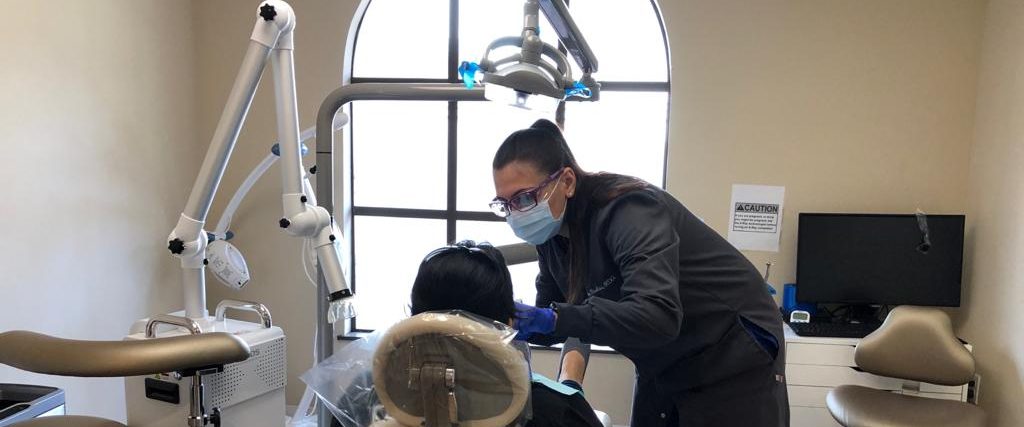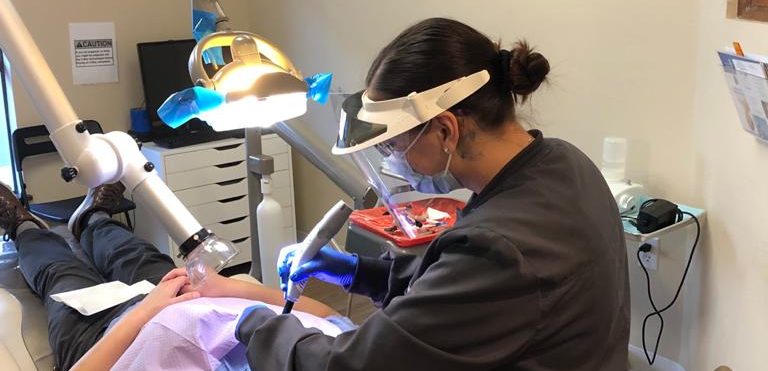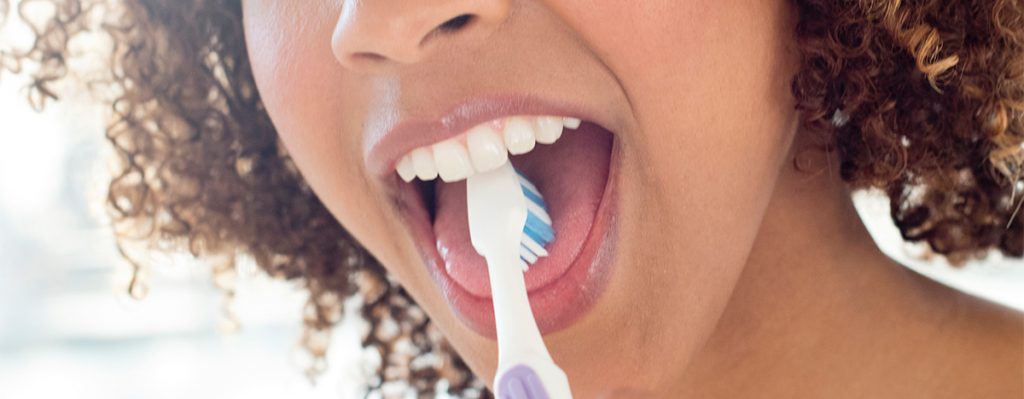Date : 21/05/2020
The two most important things to take care of for a happy old age are your money and your teeth. Without getting too deep into the science behind human biology and mineral absorption, the bottom line is that teeth need minerals to grow and live, and we get -- or lose -- minerals from our diet.
But you can learn how to remineralize teeth quickly and safely from home with a few easy changes in your lifestyle.
Our modern diet means we regularly consume mineral-deficient foods that were highly processed and often too acidic
When wondering how to remineralize teeth, remember that your diet and oral health habits are 90 percent of the battle. With proper diet, a good toothpaste and rinse, and regular dental care, you can achieve remineralization for healthier teeth that will last a lifetime.
What Does It Mean to Remineralize Your Teeth?
Your teeth can lose minerals over time due to exposure to bacteria, saliva, food, drink, and neglect. Most of us accept tooth decay as a normal part of aging.
But you do have some influence and control over how your teeth function as the years pass.
Questions to Ask When Wondering How to Remineralize Teeth
The first question you should ask yourself is how your diet relates to your tooth health.
If you eat a lot of sugar and dairy products, it will have a lasting impact. It can even make your decision on how to remineralize your teeth harder.
Giving up sugar -- except for special occasions -- and limiting dairy -- especially milk and yogurt -- will help immensely. Since sugar is an optional food item that adds no nutrients, giving it up can only improve your health and the state of your teeth and gums.
You can easily replace traditional dairy products with lower-acid alternatives. Look at your local grocery store for products like almond or soy milk. You can also easily replace yogurt with soy or coconut milk types.
Stop Daily Tooth Damage: How to Remineralize Your Teeth with Daily Habits
When considering how to remineralize teeth, your daily habits are key and the first step toward a healthier mouth. If you forgo sugar, for example, do a trial run to see what effect it has on your oral health.
Two easy daily habits to change are your toothpaste brand and sugar consumption. Try a three-week trial in which you use only the best toothpaste (more on that later) and eliminate sugar from your diet.
A little honey is okay for taste on oatmeal or in coffee, but don't consume sugary desserts, coffee drinks, or sodas.
How to Remineralize Teeth on a Budget
The great thing about tooth remineralization is that your path forward doesn't require specialized dental care or expensive fancy products. All you need are just common sense and a willingness to change your lifestyle.
Tooth health correlates with your overall health, so the changes you make when learning how to remineralize teeth can only improve your fitness.
Changing toothpaste won't cost much. And replacing any dairy and high-acid foods -- often meats -- with more alkaline foods shouldn't break the bank. Fruits and vegetables in season are not just healthy but quite affordable.
Best of all, when you cut out major sources of sugar, like donuts, cookies, and candy, you'll save money, too.
Why Do Your Teeth Lose Minerals
Exposure to an acid environment is the fundamental issue that underlies the loss of tooth enamel. That's what triggers the demineralization process.
Tooth decay occurs mainly in the form of cavities (holes in the tooth). But you can prevent this, especially if you take proactive steps before any professional dental care is necessary.
Food Combinations to Avoid
If you're trying to improve the health of your teeth, you should know that processed starches tend to cling to your teeth. It can accelerate tooth decay when you combine starchy foods with sugar.
That is especially important to know because sugar is often combined with starches in cakes, cookies, and other baked goods.
The amount of fermentation from the sugar is increased in the presence of starch, so if you're eating rice or bread, use a fat rather than sugar to improve the taste.
Another destructive combination is sugar in the form of liquids. And it doesn't matter whether you're drinking fruit juice or sugary sodas soda. Sugary beverages tend to coat the teeth.
Even worse for your teeth, fruit acids create calcium chelation, which binds with calcium and decalcifies your teeth.
High Acid/Low Alkaline Environment: How to Remineralize Teeth Through Balance
Modern Western diets tend toward high-acid diets. They're rich in both dairy and meat products. Eating fewer dairy products and limiting the portions of meat can help. Instead, cover most of your plate with more vegetables.
A better-balanced diet also balances the acid/alkaline ratio in your mouth and the rest of your body.
You can continue to eat meals that are balanced in carbohydrate and protein. However, you should choose nuts, beans, and coconut for protein sources more often.
Meat and fish are good protein sources because they are mineral- and nutrient-dense, but portions should be limited because muscle meats are acid-forming. (Also, less meat is good for your grocery budget.)
How to Remineralize Teeth Through Habit Change
Changing your oral health habits is easy compared to changing your diet. That's because the foods we eat are closely connected with our family traditions, celebrations, and emotional state.
Focus on the positive changes, like adding vegetables for health and fruits for flavor. Don't think of it as removing your favorite food. Don't focus on the negative, and you'll find you enjoy more success.
Negative food changes include, "I can't eat cake." A positive attitude sounds more like, "I can eat whatever fruits I like every day."
Practice focusing on positive changes and additions rather than deprivation and loss.
How to Remineralize Teeth Quickly
The quickest way to oral health is to follow these suggestions, listed from 1 to 11, as quickly as possible.
The more of these changes you implement, the more your teeth will thank you.
However, to be realistic, when considering how to remineralize teeth, it's best to implement the easiest steps first. Step numbers five, six, and nine on our list are both simple and cheap.
How to Remineralize Teeth: 11 Simple Steps
1) Create an alkaline environment
Creating an alkaline environment is easy using some of the suggestions below. But in general, limit your intake of dairy and meat. Add plenty of fresh and frozen veggies to your diet. A great way to do all this is to add veggie and fruit smoothies to your daily routine.
Most importantly, avoid concentrated sugars and limit stress.
2) Limit fruit juices and sugary sodas
Drink plenty of water, and avoid soda when possible.
Definitely scrap the habit of Starbucks, if you can. They tend to add lots of processed sugar to their drinks. As a treat, it's okay, but a treat should only be once a month, not every day.
Don't buy soda or keep it in the house. You should also limit your intake of fruit juice. Alternatively, you can also drink them diluted. Another option is to rinse your mouth or brush your teeth after drinking soda or fruit juice when possible.
3) Eat eight servings of veggies a day
Be creative about adding your daily vegetables. Many say that spinach has zero flavor when combined with strawberries in a smoothie. So, you can add them to a fruit smoothie to get an extra serving of healthy veg.
You can also cook in large batches, using frozen veggies and spice things up. If you get your eight servings, you are way ahead of most Americans.
Vegetables are high in minerals and healthy in every respect.
4) Increase saliva flow
Saliva prevents dry mouth and is associated with better tooth health.
Saliva flow can be improved with some rinses and will improve as you alter your diet and toothpaste.
Talk to your dentist about gum health, which can be related to saliva flow.
5) Change your toothpaste
The best toothpaste is glycerin-free and includes fluoride.
Glycerin creates a tooth coating that feels good but adds a barrier that slows down the absorption of minerals. Fluoride protects tooth health, as shown in multiple peer-reviewed studies.
6) Use xylitol
This alternative sweetener is calorie-free and has a decent flavor. You'll find it commonly in several brands of toothpaste.
Go for the gold, and find a toothpaste with fluoride, without glycerin, and with xylitol.
Better yet, you can also use xylitol in tea and coffee in place of sugar.
7) Get sunshine or take a Vitamin D supplement
An adequate amount of Vitamin D improves your overall dental health.
If you live in a sunny climate, your best chance for absorption is with a little sun exposure around midday. Try between 11 a.m. and 1 p.m., but don't over-do it. If you live in a less sunny climate, take a Vitamin D supplement, and have your blood levels checked regularly.
Vitamin D deficiency is common in Americans. Even those who live in sunny climates -- like Florida or California -- can become deficient in Vitamin D. So, have your levels checked by your doctor during your annual physical.
8) Avoid the starch + sugar trap
Save the cakes, donuts, and pastries for special occasions. Overall, they aren't healthy for you.
Besides, they taste a lot better and seem more like a treat when you don't eat them regularly.
9) Practice tongue scraping
Tongue scraping reduces bacteria and is easy to do. Get a tongue scraper, or use a spoon to remove that icky tongue film every day.
10) Do an oil pull
Try swishing some coconut oil around in your mouth for about 10 to 15 minutes. It helps you reduce bacteria in your mouth.
After this treatment, spit the oil into the trash. Don't use the sink -- it's bad for your plumbing. And don't rinse the oil out of your mouth right away.
11) Brush your teeth twice a day (or more)
Brushing your teeth never goes out of style. Spend at least a full minute brushing. And treat yourself to a powered toothbrush to improve effectiveness.
Get to Remineralizing
Your teeth can lose minerals over time due to exposure to bacteria, saliva, food, drink, and neglect. Most of us accept tooth decay as a normal part of aging.
But you do have some influence and control over how your teeth function as the years pass.




